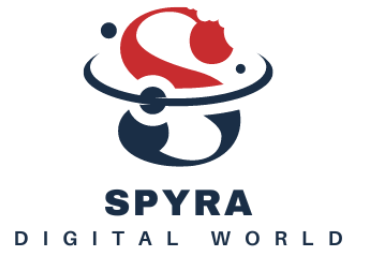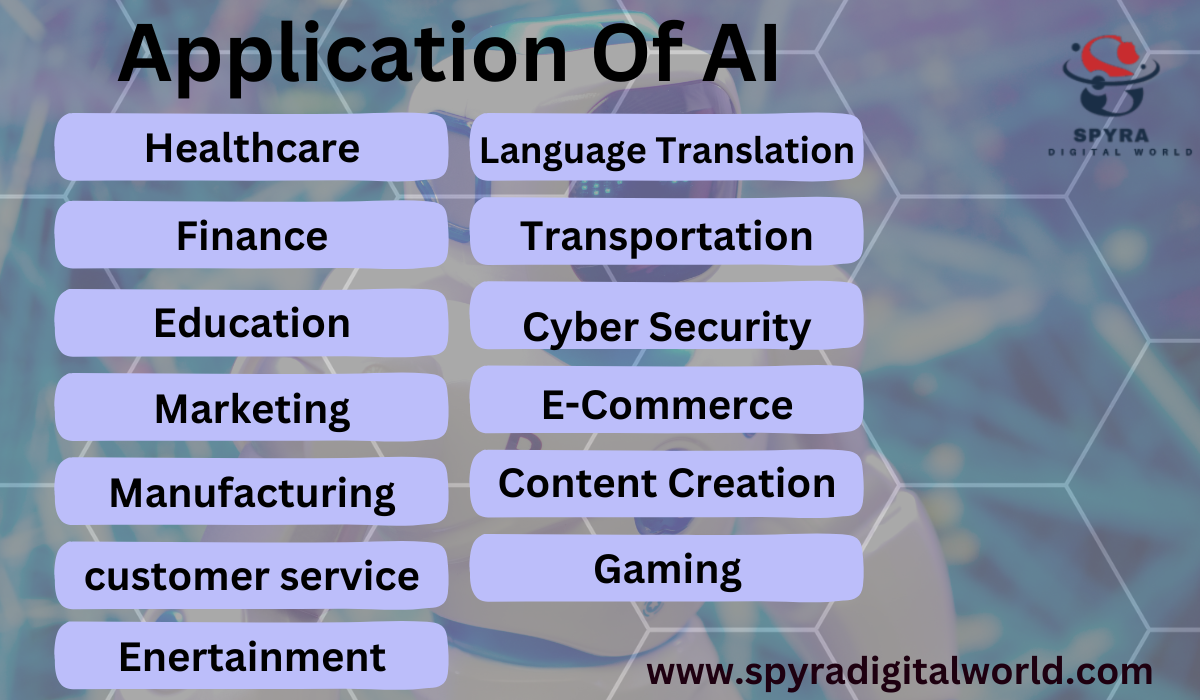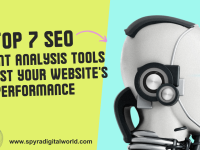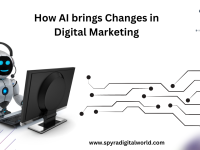Introduction
Artificial Intelligence (AI) has emerged as a revolutionary force, transforming the way we live, work, and interact with technology. With its ability to simulate human intelligence, AI has found applications in various sectors, making processes more efficient, personalized, and data-driven. In this article, we will explore application of AI in various sectors, shedding light on how it is reshaping industries and propelling us into the future.
1.AI in Healthcare: Revolutionizing Patient Care
AI is ushering in a new era of healthcare with its vast potential to enhance patient care. Advanced algorithms can analyze massive datasets to assist in disease diagnosis, predict patient outcomes, and recommend personalized treatment plans. From detecting cancer cells in medical images to monitoring chronic conditions in real-time, AI is streamlining medical practices and improving patient outcomes.
Healthcare:
- Medical diagnosis
- Drug discovery
- Personalized treatment plans
- Remote patient monitoring
- Radiology image analysis
- Disease prediction
2.AI in Finance: Redefining Smart Banking
The finance sector has embraced AI to optimize processes and elevate customer experiences. Chatbots powered by AI provide seamless customer support, addressing queries promptly and efficiently. AI algorithms are instrumental in detecting fraudulent activities and predicting market trends, enabling financial institutions to make well-informed decisions. Moreover, AI-driven robo-advisors are assisting customers in making investment choices aligned with their financial goals.
Finance:
- Algorithmic trading
- Fraud detection
- Credit scoring
- Customer service chatbots
- Portfolio management
- Risk assessment
3.AI in Education: Personalized Learning for All
Education is undergoing a transformational shift with AI-powered personalized learning experiences. Adaptive learning platforms analyze students’ strengths and weaknesses to provide tailor-made educational content and exercises. AI tutors offer individualized guidance, helping students grasp complex concepts effectively. Additionally, administrative tasks such as grading and performance tracking are automated, allowing educators to focus on teaching.
Education:
- Personalized learning platforms
- Intelligent tutoring systems
- Automated grading
- Language translation tools
- Virtual classrooms
- Adaptive learning paths
4.AI-Driven Marketing: Unlocking Business Potential
AI is revolutionizing the way businesses approach marketing. With data-driven insights, AI algorithms can target audiences more effectively, leading to higher conversion rates and improved return on investment (ROI). Personalized content recommendations and dynamic pricing powered by AI contribute to a more engaging and interactive shopping experience.
Programmatic Advertising:
- Automated ad buying and placement
- Real-time bidding optimization
- Targeted audience reach
- Dynamic ad content based on user behavior
Chatbots and Customer Interaction:
- AI-powered chatbot customer support
- Automated responses to inquiries
- Lead generation through chatbots
- Conversational marketing tactics
ROI Measurement:
- Performance tracking and analytics
- Attribution modeling for campaigns
- Conversion rate optimization
- Marketing spend optimization
Competitive Advantage:
- AI-powered market research
- Competitive analysis and insights
- Staying ahead with innovative strategies
- Early adoption of AI-driven marketing trends
5.AI in Manufacturing: Streamlining Production Processes
Manufacturing has undergone a revolution with AI optimizing production processes. Predictive maintenance systems leverage AI algorithms to forecast machine failures, preventing costly downtime. AI-powered quality control ensures products meet stringent standards, reducing defects and increasing customer satisfaction. The integration of AI and robotics is transforming factories, enhancing automation, and increasing overall productivity.
Manufacturing and Industry:
- Predictive maintenance
- Quality control
- Supply chain optimization
- Autonomous robots
- Process automation
- Energy management
6.AI in Customer Service: Enhancing Support Experiences
Customer service has been significantly enhanced by AI powered chatbots and virtual assistants. These intelligent systems can handle customer queries 24/7, providing instant responses and personalized assistance. By automating routine tasks, businesses can redirect human efforts to more complex issues, ultimately improving customer satisfaction and loyalty.
Personalized Customer Interaction:
- Tailored responses based on customer data
- Customized recommendations
- Personalized marketing messages
- Individualized product suggestions
Chatbots and Virtual Assistants:
Automated customer interactions
- Instant responses to common queries 24/7 availability
- First-line support
7.AI in Entertainment: Unleashing Creativity
AI is proving to be a game-changer in the entertainment industry, redefining creativity. AI-generated music compositions and artworks are gaining popularity, opening up new avenues for artists and revolutionizing the creative process. In the film and gaming sectors, AI-enhanced graphics and special effects are pushing the boundaries of visual storytelling, captivating audiences worldwide.
Entertainment and Media:
- Content recommendation
- Video and image analysis
- Speech and audio recognition
- Virtual reality experiences
- Music composition and generation
- Story generation
8.AI in Natural Language Processing: Enabling Better Communication
Natural Language Processing (NLP) is a key area where AI is making strides. AI-powered language translation services bridge the communication gap between people speaking different languages, fostering global connectivity. Additionally, voice assistants like Siri, Alexa, and Google Assistant utilize NLP to provide voice-based interactions, making technology more accessible and user-friendly.
Language Translation:
- Machine translation
- Multilingual communication
- Real-time translation apps
- Cross-cultural
- Voice assistants (e.g., Siri, Alexa)
- Transcription services
- Accessibility for speech-impaired individuals
- Voice commands in smart devices
communication
Language Generation:
- Text generation models
- Content creation automation
- Creative writing assistance
- Personalized marketing messages
9.AI in Transportation: Shaping the Future of Mobility
AI’s influence in the transportation sector is undeniable, with its most significant impact being felt in the development of autonomous vehicles. Self-driving cars equipped with AI technologies promise safer roads, reduced accidents, and improved traffic management. AI-powered logistics and supply chain management optimize route planning, leading to cost savings and timely deliveries.
Transportation and Logistics:
- Autonomous vehicles
- Route optimization
- Traffic prediction
- Fleet management
- Last-mile delivery
- Transportation network analysis
10.AI and Cybersecurity: Safeguarding Our Digital World
As the digital landscape expands, so do cybersecurity threats. AI-powered cybersecurity systems can detect and prevent cyber attacks in real-time, fortifying our digital defenses against ever-evolving threats.
Government and Public Services:
- Citizen services chatbots
- Fraud prevention
- Traffic management
- Public safety and security
- Urban planning and optimization
- Environmental monitoring
11.AI and E-Commerce: The Future of Online Shopping
Online shopping has undergone a paradigm shift with the integration of AI. From personalized product recommendations to AI-powered chatbots providing instant customer support, e-commerce platforms are leveraging AI to enhance customer satisfaction and drive sales.
Retail and E-Commerce:
- Recommender systems
- Demand forecasting
- Price optimization
- Inventory management
- Virtual shopping assistants
- Customer sentiment analysis
12.AI-Driven Content Creation: The Rise of Automated Creativity
AI is reshaping Content Creation by generating text, images, and even music. Content creators are using AI tools to streamline their workflow, automate repetitive tasks, and explore new creative possibilities.
Content Localization:
- AI-powered translation and localization
- Multilingual content generation
- Cultural adaptation of content
- Transcreation for global audiences
- Voiceovers and dubbing using AI voices
Concusion
The application of AI across various sectors has ushered in an era of unprecedented progress and innovation. From improving healthcare outcomes to revolutionizing entertainment, AI’s impact is reshaping industries and empowering businesses to thrive in the digital age. As AI continues to evolve, its role will only grow more significant, promising a future filled with endless possibilities and advancements. Embracing AI-driven solutions will be essential for companies looking to stay competitive and provide exceptional experiences to their customer.





